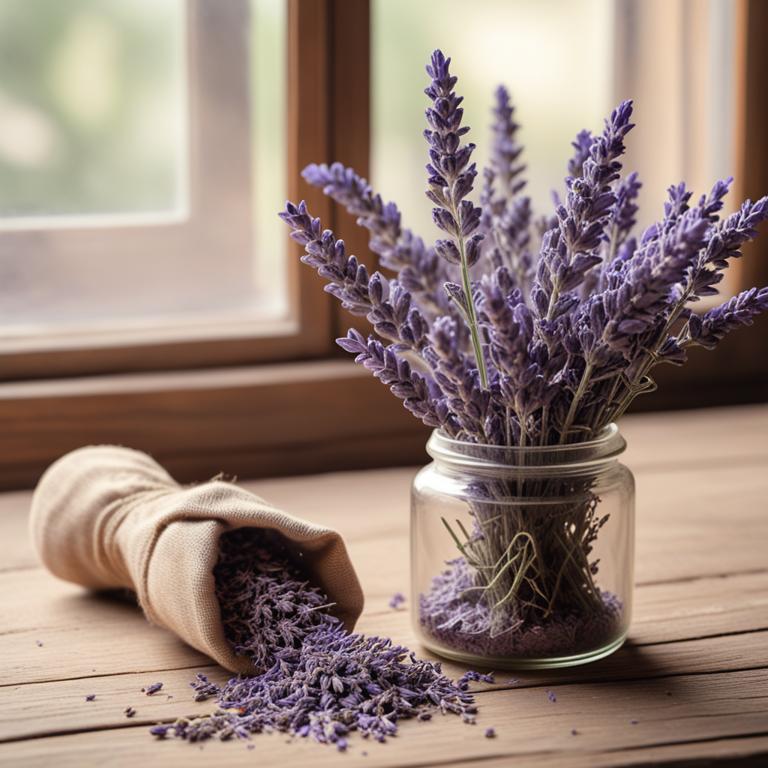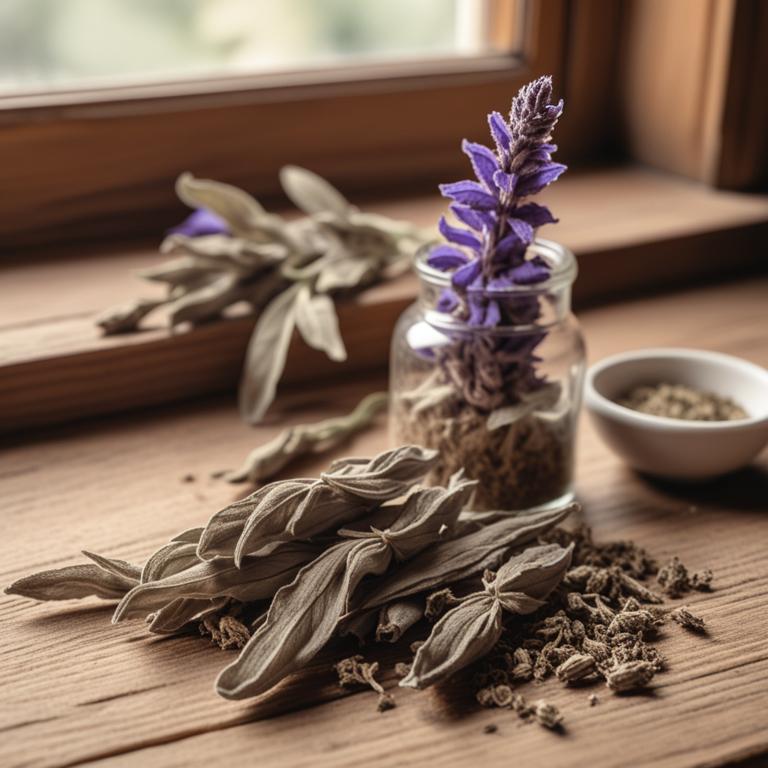Updated: Dec 1, 2024
Understanding Hypothyroidism: Causes, Remedies, and Herbal Treatments
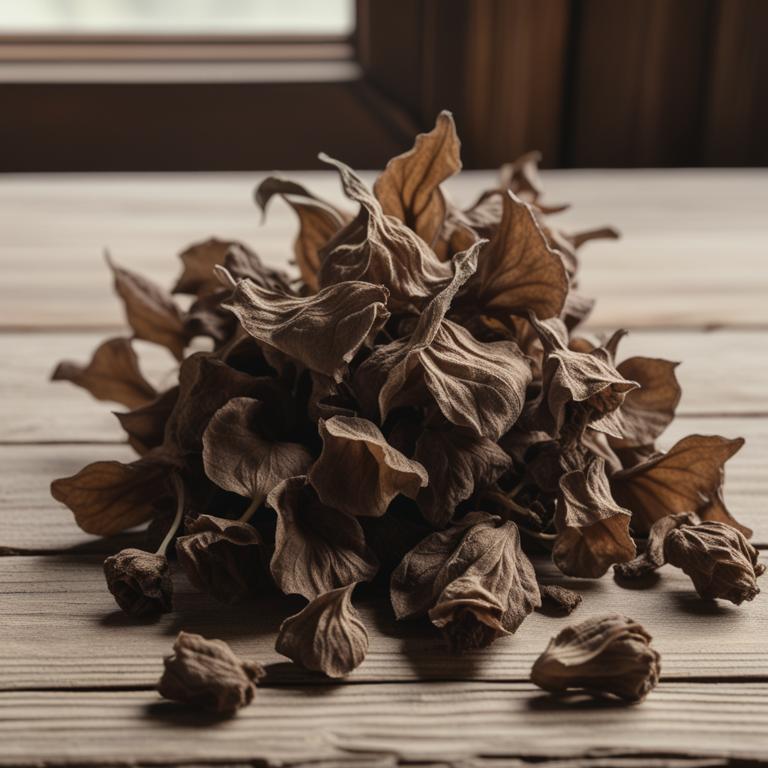
Hypothyroidism is a common health issue where the thyroid gland doesn't produce enough thyroid hormone, a hormone that regulates our metabolism, energy levels, and weight.
When you have hypothyroidism, you might feel tired, sluggish, and cold all the time. Your skin might become dry, and you might experience hair loss, memory problems, and depression. Hypothyroidism can be caused by a variety of factors, including autoimmune diseases, thyroid surgery, radiation therapy, and iodine deficiency. It's essential to get tested if you suspect you have hypothyroidism, as it can lead to serious complications if left untreated. Some herbs have been found to help alleviate hypothyroidism symptoms.
Ashwagandha, a plant native to India, is known to reduce stress and promote thyroid function. Bladderwrack, a type of seaweed, is rich in iodine, an essential nutrient for thyroid health. Other herbs like Guggul and Shilajit are also believed to support thyroid function. To use these herbs for hypothyroidism, you can try drinking teas made from them, taking them as capsules or tablets, or using them in topical creams and ointments. Ashwagandha tea, for example, can be made by steeping dried ashwagandha roots in hot water. Bladderwrack tea, on the other hand, can be made by infusing bladderwrack seaweed in boiling water.
Always consult with a healthcare professional before using any herbal remedies, especially if you're already taking medication for hypothyroidism.
Table of Contents
- What are the underlying causes of hypothyroidism?
- What are the benefits of using herbal supplements for the management of hypothyroidism?
- What are the primary herbal treatments for hypothyroidism?
- What herbal remedies are most effective for hypothyroidism?
- Are there any herbs that interact negatively with hypothyroidism?
- FAQ
What are the underlying causes of hypothyroidism?
The main causes of hypothyroidism are related to the thyroid gland's inability to produce enough thyroid hormones.
One of the main causes is an autoimmune condition known as Hashimoto's disease. This occurs when the immune system mistakenly attacks the thyroid gland, thinking it's a foreign substance. As a result, the gland's ability to produce thyroid hormones is impaired, leading to hypothyroidism. Another cause of hypothyroidism is iodine deficiency. Iodine is an essential nutrient that helps the thyroid gland produce thyroid hormones. Without enough iodine, the gland cannot produce these hormones properly, leading to hypothyroidism.
Iodine deficiency is common in areas where iodized salt is not available or where the soil is depleted of iodine. Thyroid surgery is also a common cause of hypothyroidism. When part or all of the thyroid gland is removed during surgery, the remaining gland may not be able to produce enough thyroid hormones. This is especially true if the surgery is performed to remove a large portion of the gland or if the remaining gland is damaged during the procedure. Finally, radiation therapy to the head and neck area can also cause hypothyroidism. Radiation can damage the thyroid gland and impair its ability to produce thyroid hormones.
This is because radiation can damage the gland's cells and disrupt its function.
What are the benefits of using herbal supplements for the management of hypothyroidism?
Using herbs for hypothyroidism can be a great way to support your thyroid health.
These plants are rich in nutrients and compounds that can help increase the production of thyroid hormones, which can help regulate your metabolism, energy levels, and weight. They can also help reduce inflammation and oxidative stress in the thyroid gland, which can contribute to hypothyroidism.
Additionally, some herbs have been shown to improve the absorption of thyroid hormones by the body, making them more effective. Using herbs can also be a natural and gentle way to support your thyroid health, without the side effects of medication.
Some people find that herbs help them feel more energized and focused, while also improving their mood and reducing symptoms of hypothyroidism like fatigue and dry skin.
What are the primary herbal treatments for hypothyroidism?

Herbs have been used for centuries to help manage hypothyroidism, a condition where the thyroid gland doesn't produce enough hormones.
Certain herbs have been found to have a positive effect on the thyroid gland and overall health. Glycyrrhiza glabra, also known as licorice root, is a natural anti-inflammatory that can help reduce swelling in the thyroid gland. This can help improve thyroid function and alleviate symptoms like fatigue and weight gain. Astragalus membranaceus, or astragalus, is an adaptogenic herb that helps the body adapt to stress. It increases the production of thyroid hormones and helps the body use them more efficiently. This can lead to improved energy levels, better sleep, and a more stable mood.
Withania somnifera, also known as ashwagandha, is another adaptogenic herb that helps the body manage stress. It also has antioxidant properties that can help protect the thyroid gland from damage caused by free radicals. Schisandra chinensis, or schisandra, is a herb that has been used in traditional Chinese medicine to support the thyroid gland. It has anti-inflammatory properties that can help reduce swelling and improve thyroid function. Panax ginseng, or ginseng, is an adaptogenic herb that can help improve energy levels and reduce fatigue. It also has antioxidant properties that can help protect the thyroid gland from damage caused by free radicals. These herbs can be used individually or in combination to help manage hypothyroidism.
However, it's essential to consult with a healthcare professional before using any herbal remedies, especially if you're taking medications or have underlying health conditions.
What herbal remedies are most effective for hypothyroidism?

When it comes to managing hypothyroidism, herbal preparations can be a great addition to your treatment plan.
One way to use herbs is through a decoction, which is like a strong tea made by simmering herbs in water for a long time. This method is good for herbs that are tough and fibrous, like ashwagandha and bladderwrack, which can be difficult to digest. Decoctions can help your body absorb the nutrients and compounds from these herbs, making them more effective for thyroid health. Tinctures are another way to use herbs. They're concentrated liquid extracts that can be added to water or taken straight. Tinctures are good for herbs like kelp and guggul, which have a strong, pungent flavor that might be unpalatable to some people. Tinctures are also a convenient option because they're easy to take on the go. Infusions, on the other hand, are like regular tea.
They're made by steeping herbs in hot water for a few minutes. Infusions are good for herbs like dandelion root and licorice root, which have a mild flavor and can be easily absorbed by the body. Herbal capsules are another way to take herbs, especially for people who have trouble swallowing pills or don't like the taste of tea. Capsules are made from a concentrated powder of herbs, which can be easily absorbed by the body. Finally, herbal teas are a great option for people who like a hot beverage. Teas like peppermint and chamomile can help soothe the digestive system and calm the nervous system, which can be beneficial for thyroid health. Many herbal teas also have a mild flavor, making them a great choice for people who are new to herbal remedies. It's worth noting that not all herbal preparations are created equal, and some may interact with medications or worsen certain health conditions.
Always talk to a healthcare professional before adding any new herbs to your treatment plan.
Additional Resources:
Are there any herbs that interact negatively with hypothyroidism?
If you have hypothyroidism, it's essential to be cautious when using certain herbs.
For instance, Lobelia inflata can slow down your thyroid function even further, which is not what you need when you're already dealing with hypothyroidism. This herb can also cause nausea, headaches, and dizziness, making your condition worse. Cimicifuga racemosa, also known as black cohosh, can affect your thyroid hormone levels in unpredictable ways. While it's often used to ease menopause symptoms, its impact on your thyroid function may be too much to handle, especially if you're taking medication to regulate your thyroid.
Cassia auriculata, a plant commonly found in traditional medicine, can have a similar effect on your thyroid function as Lobelia inflata. It's also known to cause thyroid problems in some individuals, so it's best to avoid it altogether. Hydrastis canadensis, also known as goldenseal, contains berberine, a compound that can decrease thyroid function. This might not be suitable for people with hypothyroidism, who are already trying to increase their thyroid hormone levels. Ephedra sinica, a plant that contains ephedrine, can increase your heart rate and blood pressure.
However, people with hypothyroidism often have issues with their heart rate and blood pressure, so consuming ephedra sinica may worsen these problems.
FAQ
Are there any specific herbs that can prevent hypothyroidism?
Some herbs may help support thyroid health.
Ashwagandha, for example, has been studied for its potential to balance thyroid function. It's thought to help the thyroid gland produce more hormones. Another herb, bladderwrack, is rich in iodine, which is essential for thyroid health.
Some people also turn to ginseng for its potential to support overall well-being.
Is it safe to use herbal remedies for hypothyroidism during pregnancy?
Using herbal remedies for hypothyroidism during pregnancy can be a concern.
Some herbs, like thyroid hormone-boosting ashwagandha, may interact with medications or affect fetal development. Additionally, the quality and safety of herbal supplements can vary greatly.
As a precaution, it's best to carefully research and choose a reputable brand, but be aware of potential risks.
Are there any herbs that can reduce the frequency of hypothyroidism?
Some herbs may help reduce the frequency of hypothyroidism.
Ashwagandha, for example, is believed to support thyroid health by reducing stress and promoting hormone balance.
It's thought to work by increasing the production of thyroid hormones and improving the overall functioning of the thyroid gland.
Can i combine different herbal remedies for hypothyroidism?
You can combine different herbal remedies for hypothyroidism, but be careful.
Some herbs may interact with each other or with other health conditions. For example, ashwagandha and ginseng may increase thyroid function too much.
If you're considering combining herbs, start with small amounts and monitor your body's response.
Related Articles
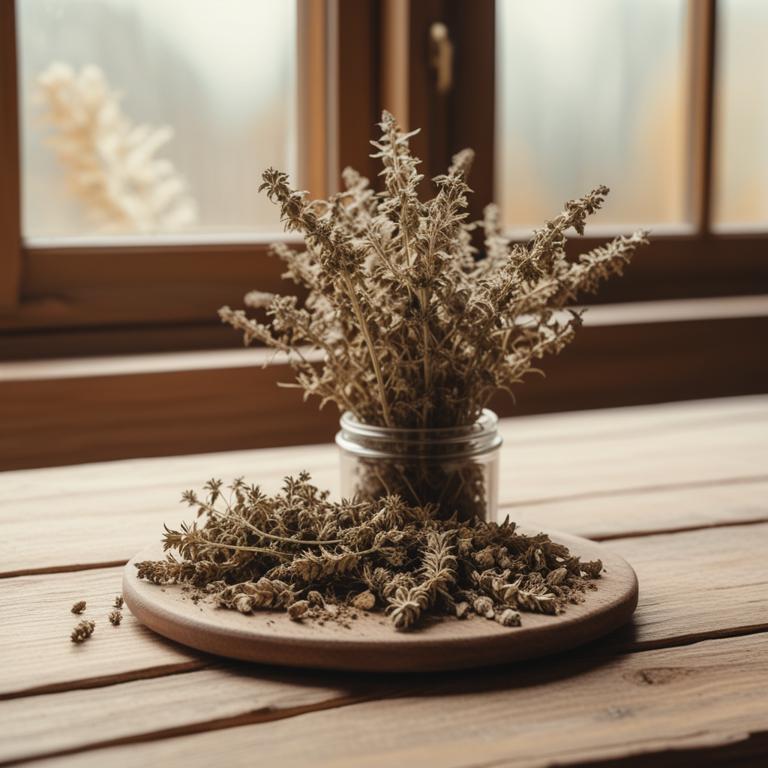
Hormonal Imbalance: Causes and Prevention with Herbal Medicinal Preparations

Understanding Adrenal Fatigue: Causes, Remedies, and Herbal Support
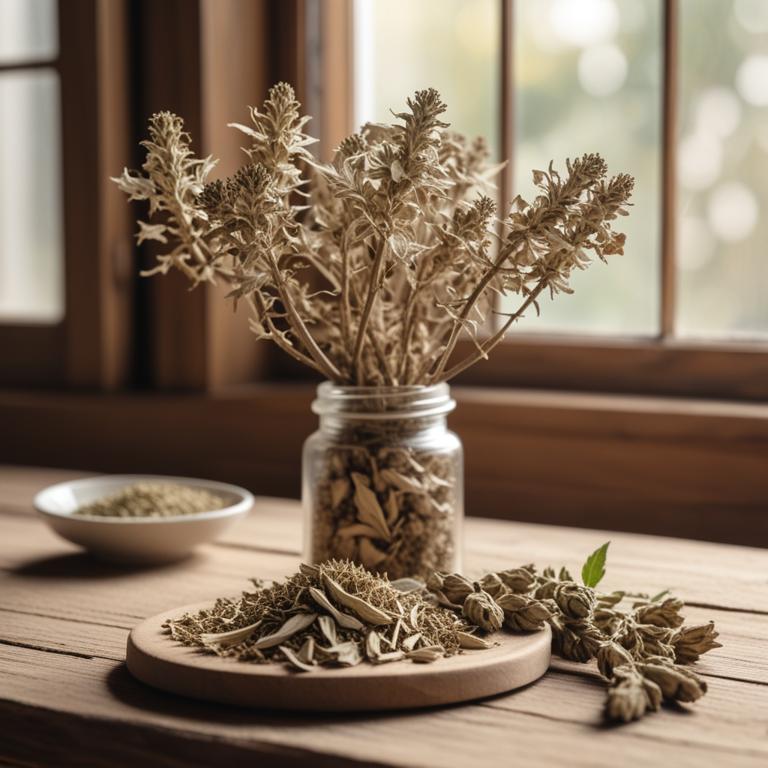
Causes of Aging: Natural Remedies with Medicinal Herbs and Preparations
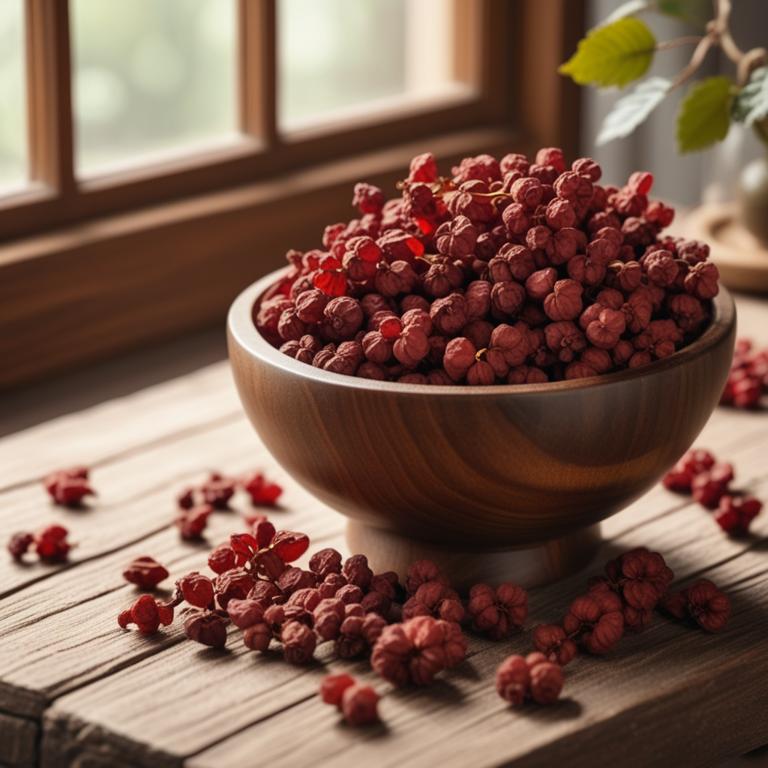
The Holistic Approach to Hyperthyroidism: Causes, Herbal Remedies, and Natural Treatments
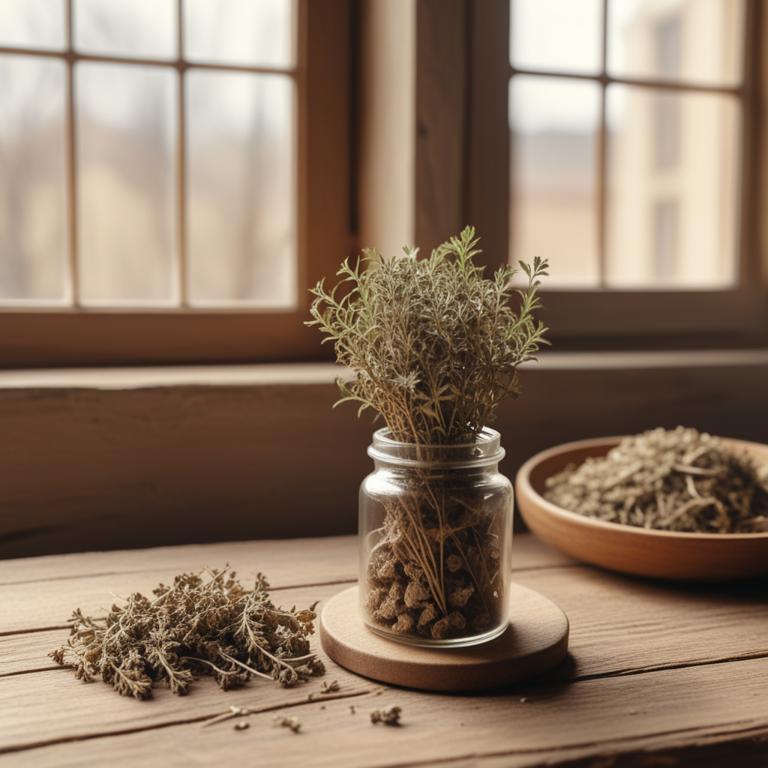
Understanding Hypothyroidism: Causes, Remedies, and Herbal Treatments
